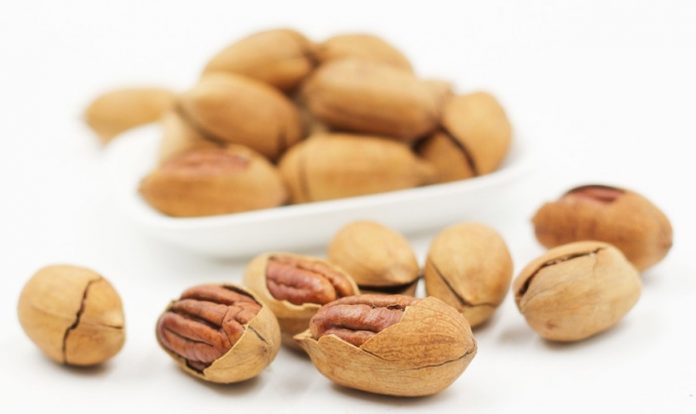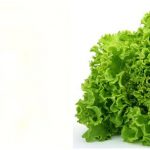Pecans are best known for their naturally sweet flavor. This is the reason why they are often used as an ingredient for desserts. When incorporated in a pie, they give out a rich and buttery goodness that’s hard to resist. No doubt pecan pie a holiday favorite!
But more than their pleasantly sweet taste, there is more to love about pecans. They are also a powerhouse of vitamins and minerals as they contain Vitamins A, E, and C, as well as calcium and potassium among others. Pecans are on the list of foods with the highest content of antioxidants and also contain flavonoids which are essential for heart health.
If your dog likes munching on nuts, he will surely find pecans inviting. However, we have to remember that not all nuts are safe for dogs. Walnuts, for instance, are a big no-no for canines. But what about their cousins, pecans?
Can Dogs Have Pecans?
While they are healthy for humans, vets do not recommend giving pecans to dogs for several reasons. The first cause of concern is the fat content of these nuts. It is not ideal to include nuts in your dog’s diet especially if he has pancreatitis or if he is suffering from obesity.
Pecans are loaded with fat. An ounce, which is equivalent to 19 pecan halves, contains as much as 20 grams of fat. That amount of fat is not healthy for a 30-pound dog that only needs 14 grams of fat per day. An adult dog’s diet should also consist of 5-10 percent of fat per day.
If your dog is on the heavy side and weighs more than 60 lbs., he can safely consume this amount of pecans as they can consume around 28 grams of fat per day. However, this does not mean you can just give nuts to them to supplement their fat requirement.
Dogs should get their fat needs mostly from animal fat. A canine’s digestive system is designed to digest animal fat and protein from animals.
The high fat content of pecans can cause vomiting and diarrhea in dogs. When consumed in very large amounts, it can cause pancreatitis or the inflammation of the pancreas.
Pancreatitis is not the only sickness associated with eating high-fat foods in dogs. When a dog becomes too fat, he will also suffer from joint problems. These are more common in elderly dogs, but there are instances when younger dogs also suffer from these problems.
Canines with arthritis or joint mobility issues are usually required to have homemade, low-fat meals. Their diet should consist of lean meat, cooked veggies, and a bit of offal.
How About Pecan Pie?
Pecan pie is not a wholesome treat to dogs either. Baked pecans are not poisonous at all but their richness can cause vomiting and diarrhea. The pie is too sweet for dogs since it contains sugar and corn syrup. It also contains dairy and pure vanilla extract.
If your pooch ate the most of or even a whole pecan pie, it’s highly likely that he will vomit it out. Let him vomit and don’t panic. Just keep an eye out for other symptoms like lethargy and blood in his vomit. In the event that these symptoms are present, bring the dog to his vet.
What To Do If Your Dog Ate Too Many Pecans?
In case dog ate a lot of pecans, let’s say more than a cup, it is best to observe him for the next 24 hours. If he’s been throwing up and having loose stools non-stop, give him Pepcid AC.
Pepcid is an acid-suppressing medicine that reduces the production of acid in dog’s stomach so it helps soothe your dog’s gut. You can give a quarter of the 10 mg tablet every 12 hours for a couple of days.
This medication is an over-the-counter drug so you can buy it without prescription. Still, you have to practice caution when administering it to your dog. It’s not appropriate for long-term use, which means you cannot give it to a dog for more than three days.
Don’t give your dog Pepto-Bismol. This contains a form of aspirin that can further upset the dog’s stomach. It’s also not advisable to give him Imodium during this time.
Other than administering these meds to your pooch, it is also important to withhold food for 24 hours. Your dog’s gut needs some time to rest.
When dog gets his usual appetite back, try to offer foods that can firm up his stool. Pumpkin, as well as chicken and rice or ground beef, are just some of the best options. Continue giving this diet for several days.
If all else fails, don’t hesitate to bring your dog to a veterinarian. This is very important especially if you noticed symptoms other than vomiting and diarrhea, including lethargy, abdominal pain, and anorexia.
To make sure Fido does not consume the excessive fat content of pecans, avoid giving him pecans at all. There are a lot of safe tree nuts for canines, such as pine nuts, almonds, and coconuts.
If you have a pecan tree in your yard, keep an eye on your dog as well. He might be snacking on the nuts falling from the tree. While most dogs are smart enough to remove the shells before eating the nuts, some dogs would just gobble down the nut whole.
Another cause of concern is the high phosphorous content of pecans. Like most nuts, pecans are also rich in this mineral. An ounce of pecans has a whopping 274 milligrams of phosphorous.
Dogs, especially puppies, need phosphorus for proper growth and development. This mineral works hand in hand with calcium to form calcium phosphate that strengthens their bones and teeth. However, an excessive amount of this mineral can cause serious problems, such as the formation of bladder stones in dogs.
The bladder stone can cause the blockage of the urinary tract. Aside from difficulty urinating, you’ll know your dog has bladder stones if there is blood in his urine.
When there is an excess of phosphorus in the blood, dogs could suffer from hyperphosphatemia. This can affect dogs of any age, although pets with kidney diseases are more susceptible to it. Dogs with this condition are restricted to phosphorus-rich diets, which means you should avoid giving those nuts.
Other than the pecans’ fat and phosphorous content, we have to remember that there are a few more risks involved in giving them to dogs regularly. One of these risks is the fact that these nuts may contain a toxic substance.
What Is The Toxic Substance in Pecans?
It is called juglone, a plant-produced chemical that serves as the pecan’s deterrent against competing plants and predators. Juglone works by stunting the growth of other plants.
This compound is also present in black walnuts and hickories. Walnuts actually have a high content of juglone. This substance is not harmful to humans, however, it may cause laminitis in horses.
In dogs, pecans can also cause gastrointestinal issues. The good news is that there are very low levels of juglone in pecan kernels. This explains why they are considered safe for dogs.
Given that, there’s no reason to panic if Fido accidentally ate less than a handful of pecans. It will take large quantities of pecans before they could cause gastrointestinal upset in dogs.
Other Risks of Feeding Your Dog Pecans
The shells of pecans are sharp. Thus, dogs should not eat these nuts with the shell on because the right sized piece could end up getting stuck in their intestines.
One more peril of giving pecans to dogs is the possibility that your pet could ingest molded nuts. Those moldy nuts may have tremorgenic mycotoxins which can cause seizures or neurological symptoms.
The Vetfolio said that tremorgenic mycotoxins can cause “sometimes severe and potentially deadly” systemic poisoning in canines. Because dogs have an indiscriminate eating habit, they often become sufferers of tremorgenic mycotoxin intoxication.
If you suspect dog ingested moldy pecans, call your vet immediately. Better watch out for symptoms like vomiting, agitation, and tremors. Some dogs also suffer from hyperthermia after consuming moldy foods.
Conclusion
Pecans, as well as pecan pie, are not advisable for dogs for several reasons. One, they have a too high fat content and two, they may contain the juglone toxin that can harm Fido’s stomach. If you wish to give your dog some nuts, go for the safer alternatives such as peanuts and hazelnuts.
There are a lot of healthier food options for dogs out there. Nuts are not really recommended for them. You don’t have to feel guilty about keeping those nuts for yourself, especially if you’re only thinking of your dog’s safety.






















